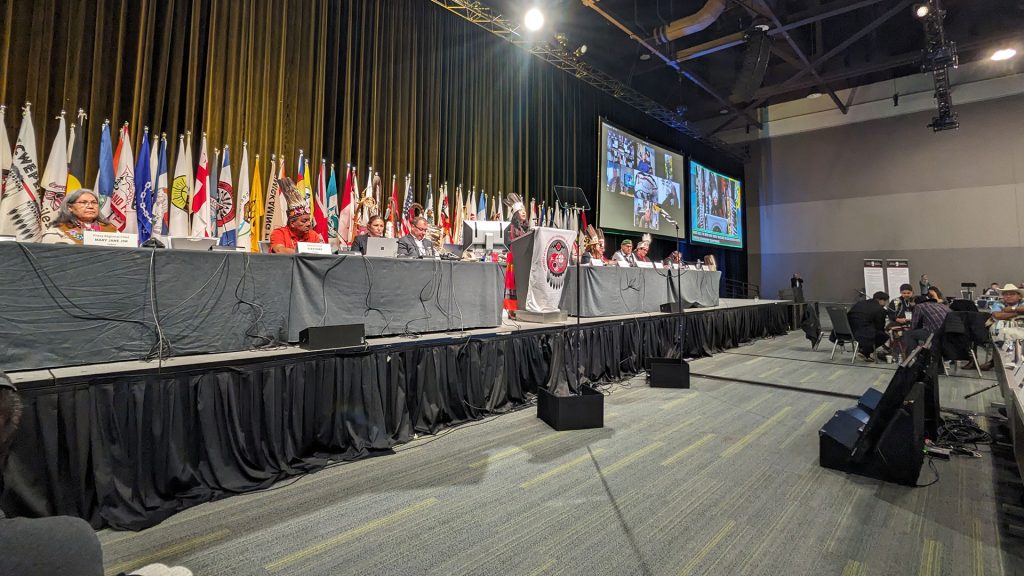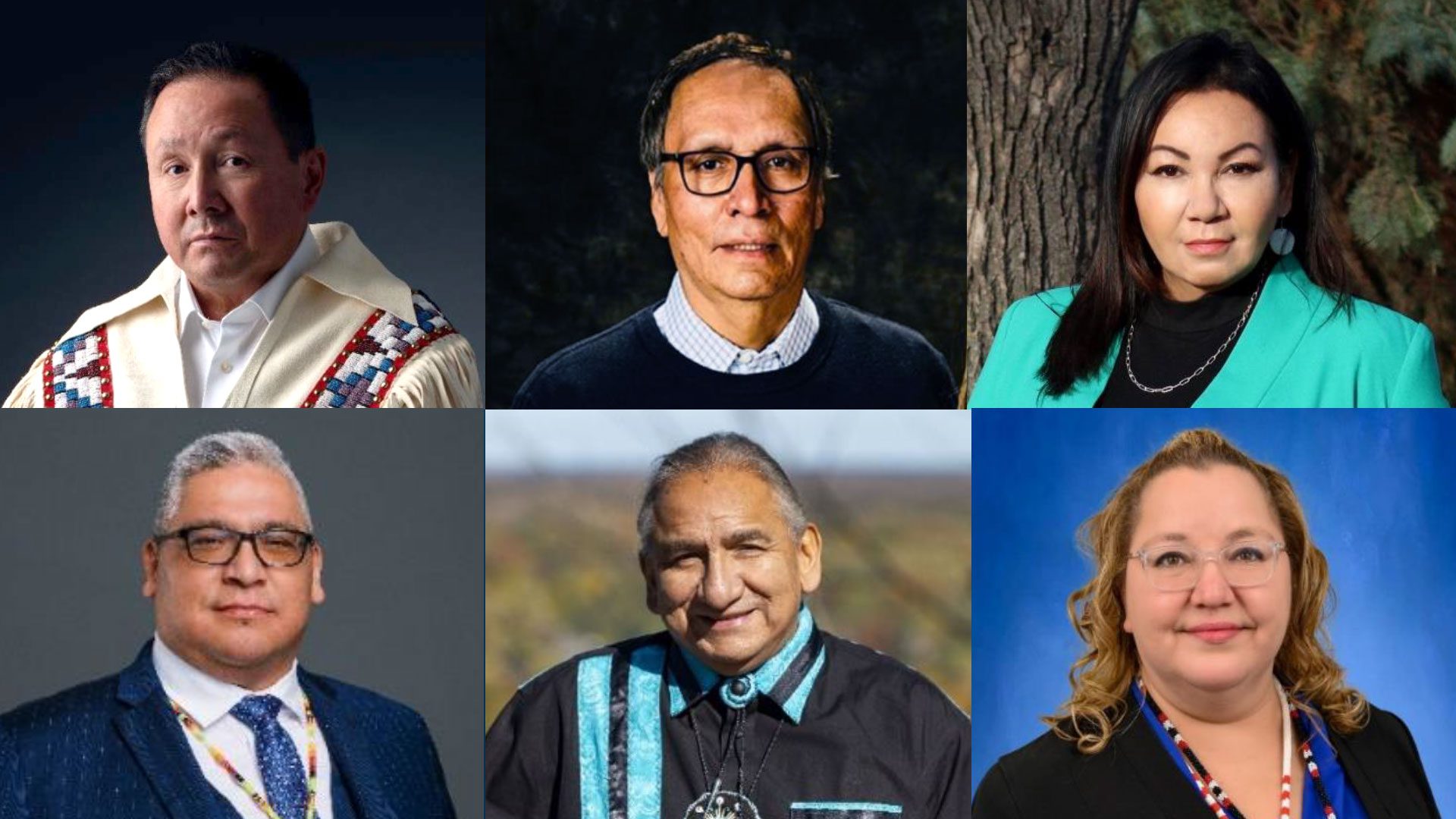
Interim National Chief Joanna Bernard addressing the assembly in Ottawa. Photo: Mark Blackburn/APTN
A special meeting of the Assembly of First Nations is kicking off in Ottawa on Tuesday, as chiefs get ready to elect a new leader.
The election of the organization’s next national chief comes as members look for a reset, following a turbulent period when their internal politics were as high-profile as their advocacy for some 600 First Nations.
Former national chief RoseAnne Archibald was ousted in June at a special chiefs’ assembly held to address the findings of an investigation into complaints from five staff members about her conduct.
The third-party independent review concluded some of Archibald’s behaviour amounted to harassment. It also found she breached internal policies by retaliating against complainants and failing to maintain confidentiality about the matter.

Archibald denied those allegations, and her supporters maintain she was removed from the post for trying to change the organization’s status quo.
Of the 231 chiefs who took part in the special assembly, 71 per cent voted to remove her.Reginald Bellerose, chair of the Saskatchewan Indian Gaming Authority and the Saskatchewan Indian Training Assessment Group, is on the list, along with Craig Makinaw, a former chief of Ermineskin Cree Nation and ex-AFN Alberta regional chief.
Read more:
A look at the six AFN candidates vying to become the next national chief
Also running are Sheila North, a former grand chief of Manitoba Keewatinowi Okimakanak, and David Pratt, vice-chief for the Federation of Sovereign Indigenous Nations.
Rounding out the list are Dean Sayers, a longtime Batchewana First Nation chief, and Cindy Woodhouse, the assembly’s current regional chief for Manitoba.
According to the assembly’s election procedures, each member nation has one vote, which can be cast either by the chief or by a registered proxy.
The winner of the election is the candidate that receives more than 60 per cent of the votes.
If no candidate receives more than 60 per cent of the vote, the candidate with the lowest number of votes is eliminated and additional rounds of voting ensue.
Immediately after the election, the new national chief is expected to participate in an oath of office ceremony.
While chiefs are gathering to elect their new leader, they’re also using the special assembly as a means to advance their other interests.
A hefty package of resolutions up for discussion includes concerns around child welfare, health care and homelessness.
The 42 draft resolutions include one, from Chief Allan Polchies of St. Mary’s First Nation, that would reaffirm the traditional roles of two-spirit and gender-diverse peoples within First Nations.
It calls on the AFN to reject government policies that would affect people with those identities, and seeks adequate funding and resources for an advisory council focused on the issue.
Chief Lance Haymond of Kebaowek First Nation is seeking support to approve and implement a national First Nations homelessness action plan.
His resolution calls for the assembly to advocate for “long term, sustained, needs-based funding options for First Nations,” so that they can deliver their own programs and services no matter the particular constraints they may be facing.










